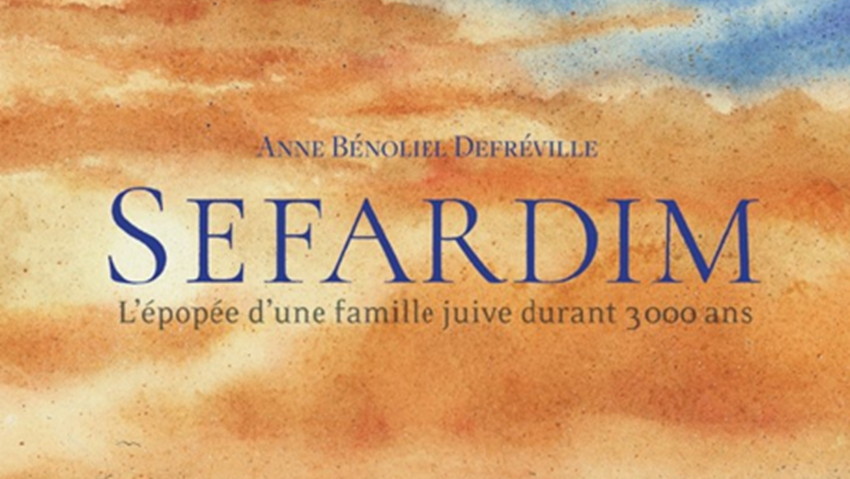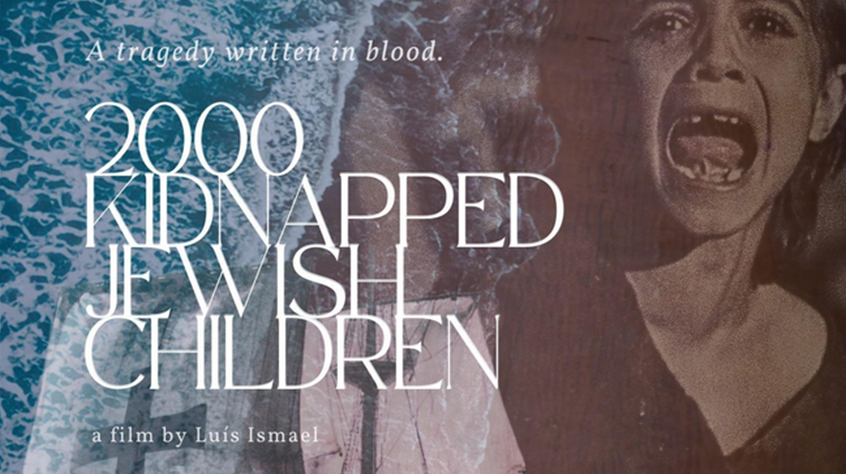AEPJ President François Moyse was interviewed by French web magazine Tribune Juive in the context of the upcoming annual European Days of Jewish Culture festival, which will kick off on September 3 throughout the European continent.Sunday September 3 marks the start of the 2023 edition of the European Days of Jewish Culture.
François Moyse, President of AEPJ, the European Association for the Preservation and Promotion of Jewish Culture and Heritage, explains to Haïm Musicant the reasons for the success of this event, now organized in 29 countries.
François Moyse, you are President of AEPJ, the European Association for the Preservation and Promotion of Jewish Culture and Heritage. Every year, you organize the European Days of Jewish Culture. On September 3, they will be inaugurated with a ceremony in Brussels. Why did you choose this city to launch the event?
We chose Brussels this year because it’s one of the headquarters of the European Union, probably the main one, and home to the European institutions we’re inviting. In fact, we have received a grant from the Union for our project, and the ceremony on September 3 is part of this project. What’s more, the recognition of our association as a key player in combating prejudice through our actions is thus rewarded, and it seemed obvious to us to organize this ceremony in this city.
What will happen at the ceremony?
The ceremony, to be held in the Grande Synagogue de l’Europe, will feature a varied program of speeches by senior representatives of the three European institutions: the Council of Ministers (chaired at the time by Spain), the European Parliament and the European Commission. Other speakers will follow, including the Deputy Secretary General of the Council of Europe this time (based in Strasbourg), all to the accompaniment of Jewish music and choral and hazan singing. Jewish heritage will be celebrated in many different ways.
How many activities are planned for September 3, and in how many countries?
At present, we can’t say exactly how many activities will be taking place, as they are so varied and geographically dispersed. By way of comparison, our figures for 2022 are as follows: 29 participating countries, 860 activities and almost 150,000 visitors to the activities on offer. This year’s figures should be at least similar.
The first EDJC took place in 1999. Tell us about its birth.
Under the aegis of a number of volunteers from Strasbourg’s Jewish community, including Madame Claude Bloch of B’nai B’rith, an open day was held in conjunction with the Tourist Development Agency: Throughout the summer, 130 activities took place all over Alsace, giving visitors the chance to visit previously inaccessible sites of incomparable heritage, tourist and historical value: Jewish cemeteries, synagogues (often empty), ritual baths, Jewish quarters and houses were all (re)discovered, and the success was immense. It was decided to organize a European Day of Jewish Culture based on the same recipes. At the time, I was director of B’nai B’rith Europe: together with 2 other organizations, we launched this event, coordinating activities in 17 European countries, and it was just as successful. Since then, the Day has become an integral part of the annual calendar.
In 2004, AEPJ was created to coordinate the EDJC. But what other programs do you organize?
AEPJ has been recognized by the Council of Europe as a cultural project of European importance, and we have therefore created the European Routes Jewish Heritage, which can be found on our website www.jewisheritage.org. The association thus federates a multitude of projects around Jewish heritage and culture, and carries out training activities and very fruitful exchanges around these subjects, which have now gained central importance in the calendar of both Jewish and non-Jewish institutions.
How are you received by public and political authorities? Are there countries where it’s easier than others?
The welcome we receive everywhere is very warm, and the interest in preserving and promoting Jewish heritage can be found at local and regional level, but also at national level in many, many countries. This includes states far from Western Europe, including Azerbaijan, Georgia and Armenia. But wherever we go, our presence is seen as a great support to efforts to preserve the local Jewish heritage, a testimony to a history of integration and exchange, which must be constantly remembered, without of course obliterating the dark years of the Shoah. Whether in Syracuse in Sicily, Izimir in Turkey or Novi Sad in Serbia, but also in Schirmeck in Alsace, we have been present to show the way to concord between authorities and citizens, through Jewish culture and its history, materialized by the splendid Jewish heritage that bears witness to it. We must not let it be forgotten: for our part, we will continue to work tirelessly towards this end.
Source: Jewish Heritage


































